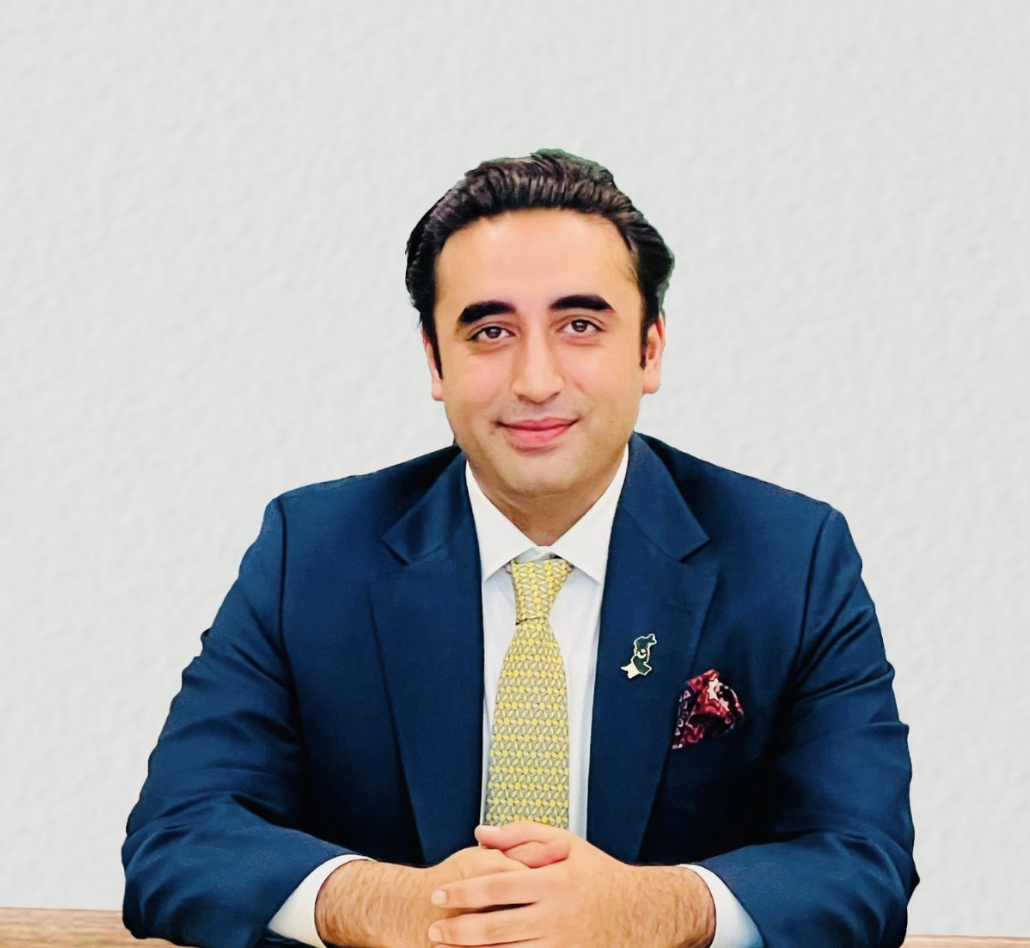Bilawal Bhutto Leads Pakistan’s Diplomatic Push for Peace, Justice and Regional Stability
NEW YORK/ISLAMABAD – Pakistan People’s Party (PPP) Chairman and former Foreign Minister Bilawal Bhutto Zardari is leading a high-level diplomatic delegation to the United Nations, where he is presenting Pakistan’s position on regional security, Kashmir, water rights, and countering terrorism. The visit comes in the wake of heightened tensions between India and Pakistan following the April 22 Pahalgam attack in Indian Illegally Occupied Jammu and Kashmir (IIOJK), which killed 26 Indian tourists. India blamed Pakistan without any credible evidence, prompting Islamabad to initiate an international diplomatic response.
Bilawal Bhutto, in meetings with global envoys and in public statements, has strongly rejected India’s accusations, describing them as politically motivated and unsupported by facts. He warned that India’s hasty blame-game approach undermines the possibility of meaningful peace and dialogue in South Asia. “Baseless allegations only escalate tensions. Pakistan demands evidence-based dialogue, not finger-pointing,” he asserted.
In his message to the United Nations and global community, Bilawal emphasized Pakistan’s principles of “peace with dignity, dialogue with purpose, and partnerships based on justice.” During a meeting with acting US Permanent Representative to the UN, Ambassador Dorothy Shea, Bilawal thanked the U.S. administration—specifically President Biden—for supporting recent ceasefire efforts and stressed the need for sustained engagement to promote regional stability.
The Pakistani delegation, which includes Senators Sherry Rehman, Hina Rabbani Khar, and Dr. Musadik Malik, has actively engaged with permanent and non-permanent members of the UN Security Council. In meetings with ambassadors from China, Russia, and 10 non-permanent UNSC members, Pakistan conveyed its concern over India’s aggressive rhetoric and unilateral actions, including the suspension of the Indus Waters Treaty. Bilawal called this an alarming act of “weaponising water” and a breach of international agreements.
In discussions with China’s Permanent Representative Fu Cong, both sides reaffirmed their commitment to multilateralism, international law, and opposition to unilateral aggression. Bilawal praised Beijing’s consistent support for Pakistan’s stance on Kashmir and regional peace. In his meeting with Russia’s Ambassador Vassily Nebenzia, Bilawal reiterated Islamabad’s preference for restraint and diplomacy, highlighting Pakistan’s responsible and measured response to provocations.
Speaking to the media and in a video message, Bilawal Bhutto condemned India’s “unprovoked aggression,” which he said resulted in civilian deaths and destruction of infrastructure. He reminded the world that without resolving the Kashmir issue in line with UN Security Council resolutions and the wishes of the Kashmiri people, lasting peace in South Asia remains impossible.
The delegation also raised concerns over the humanitarian and environmental fallout of India’s suspension of the Indus Waters Treaty. Minister for Climate Change Musadik Malik warned that the treaty’s suspension could lead to water scarcity, food insecurity, and severe humanitarian crises. He pointed out that the treaty contains no provision for unilateral suspension, branding India’s move as reckless and destabilizing.
Despite a robust diplomatic schedule, observers have pointed out the delegation’s limited engagement with Western media and human rights organisations. Critics argue that to effectively counter India’s narrative, Pakistan must actively engage not just friendly states but also sceptical or neutral audiences in the West.
Nonetheless, Pakistan’s diplomatic push was appreciated by many UN member states. According to the PPP, UN Security Council representatives welcomed Pakistan’s outreach and stressed the importance of de-escalation, dialogue, and respect for international law.
Senator Sherry Rehman underlined that the PPP-led delegation was focused on strategic diplomacy, not photo opportunities. “Under Bilawal Bhutto’s leadership, we are engaging the global community with clarity, vision, and purpose. We are highlighting Pakistan’s image as a responsible regional power committed to sustainable peace,” she stated.
Meanwhile, the Ministry of Foreign Affairs in Islamabad strongly condemned recent incendiary remarks made by Indian leaders, including Prime Minister Narendra Modi’s statements during an election rally in Bihar. Modi’s warning that “Operation Sindoor” was just the beginning was labelled as “dangerous political theatre” by Pakistani officials, who urged the international community to note India’s escalatory rhetoric.
Foreign Office spokesperson Shafqat Ali Khan reaffirmed Pakistan’s position that lasting peace requires maturity and meaningful dialogue. “India cannot achieve peace by threats or distortion. The root causes of conflict, especially the unresolved Kashmir dispute, must be addressed with honesty,” he said.
Khan also rejected Indian claims that dialogue cannot proceed while terrorism persists. He reminded the media that Pakistan has suffered immensely in the war on terror and continues to fight extremism within its borders. However, he stressed that terrorism must not be used as a political tool to derail peace or vilify Pakistan without evidence.
The Pakistani delegation is scheduled to meet representatives of all 15 UNSC members, the UN Secretary-General, and ambassadors from the Organisation of Islamic Cooperation (OIC) and the Non-Aligned Movement (NAM). They will also address the United Nations Correspondents Association and engage with Pakistani media.
As tensions between the two nuclear-armed neighbours continue to simmer, Pakistan has called for the international community to play a more proactive role. It remains to be seen whether this diplomatic initiative will succeed in shifting the global narrative or compel India to return to the negotiating table. But one thing is clear: Pakistan is making a renewed effort to assert its voice in global forums and uphold its sovereignty through strategic diplomacy, not confrontation.















